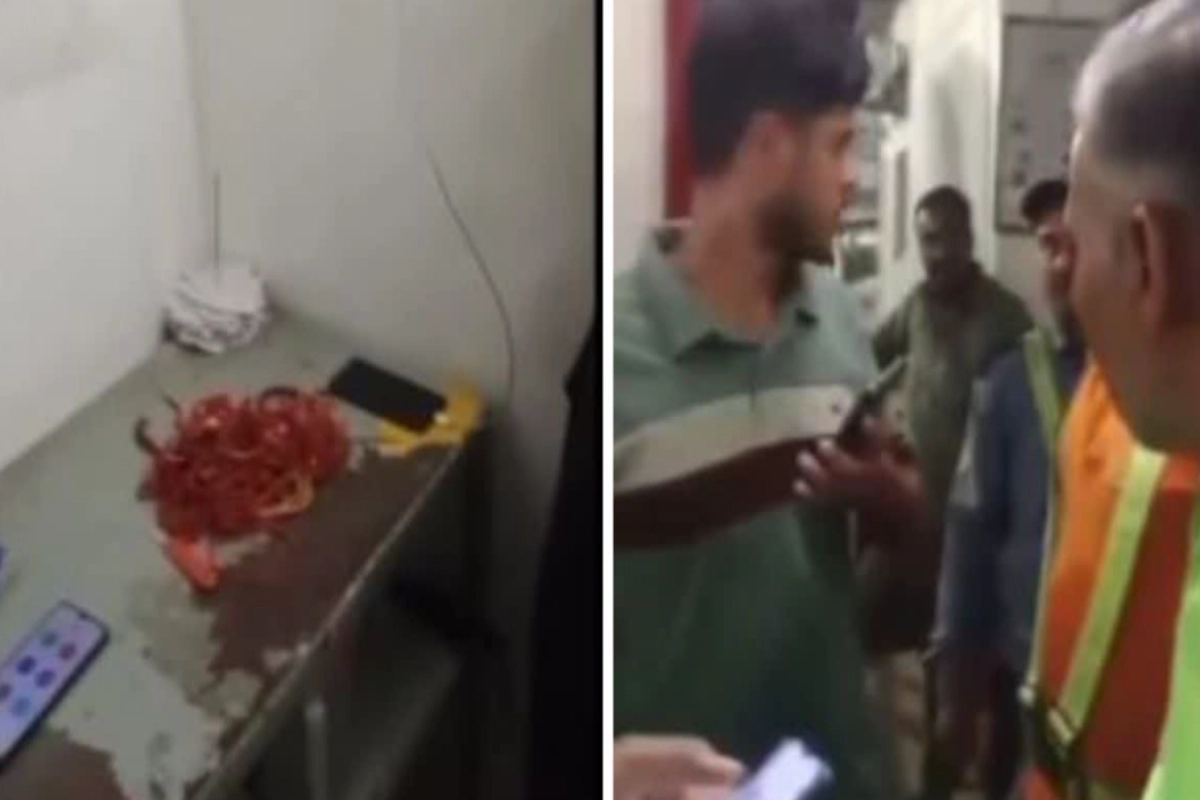Ayodhya Viral Video: An Ayodhya, Uttar Pradesh viral video showing Kalava, a sacred Hindu thread, being cut from the wrists of employees before allowing them to enter a factory has sparked many in anger. The religious city has erupted over the issue, with many accusing the factory of insulting Hindu traditions. The viral video that has gone social media berserk shows a security person cutting off the Kalava from the wrists of employees and collecting the strings torn off in a heap.
Ayodhya Factory Sparks Controversy Over Kalava Removal
The incident reportedly took place at the Coca-Cola factory at Pura Qalandar police station area in Ayodhya. The one recording can be heard saying that Hindus were being insulted as their Kalava was being forced to be removed. He refused his Kalava to be cut, claiming that his religious identity was being disrespected. As he is seen on video cutting the threads using a knife-an action that has caused quite an uproar at Ayodhya, where so much religious importance exists for Hindus.
The social media erupted quickly demanding stern action against those enforcing such a rule. Cutting off somebody, particularly in a holy city like Ayodhya, has been perceiving it as an offense against the Hindu belief and thus intensified the backlash.
Coca-Cola Company Silent on Controversy
Shortly after the controversy, the Coca-Cola Company refused to comment on it. Sachchidanand Tiwari, the security officer of Amrit Bottlers Private Limited clarified that it was a rule in the factory to not let anyone with Kada, rings, bracelets, and wristwatches enter that place as contamination would go on there in beverage production. He said he never gave an instruction to the security guard to cut Kalava and that the guard mistakenly started cutting it, misunderstanding the rules.
Tiwari issued an apology regarding the incident, stating that no such rule was ever in place or proposed anywhere in the future. He claimed that, despite any hurt to religious sentiments, the action was an isolated instance of the security personnel. The row has once again opened up debates regarding respect for religions at workplaces, especially in culturally sensitive regions.


